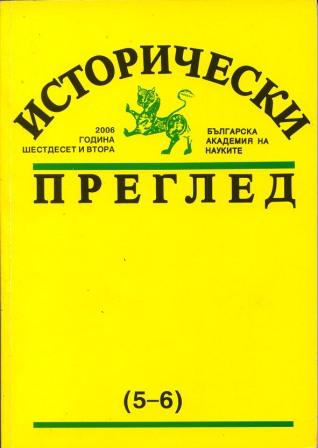Консервативна или либерална избирателна система (българският опит от 1882 г.)
Conservative or Liberal Electoral System (The Bulgarian Experience in 1882)
Author(s): Todor GalounovSubject(s): History
Published by: Институт за исторически изследвания - Българска академия на науките
Summary/Abstract: In the summer of 1882 the ruling Bulgarian élite, headed by Kniaz Alexander I supports the idea of a conservative political “turn”, including changes in the electorial system. The idea is that a two-stage electoral system, based on the property and educational qualification, will “filtrate” the inceptive Bulgarian political élite. The purpose is that the broad masses of the people to make a political selection of the most prepared for work in the parliament citizens, ones who have appropriate popularity amongst larger group of people that can trust them. The reform states that the Bulgarian elector is in “first grade in the school of democracy”. Therefore, this can lead to plenty tragicomic situations when “making” elections in Bulgarian political life. The participation in the elections admitted a public burden, and once one has accepted their right to vote it is for good. The transformation from right into duty is not expedient. The electors are forced to vote and this leads to distortion of the elections and as it is seen to political victory of the current authorities. The experience of this electoral law enforcement is too scanty to jump to conclusions of what had happened if this law persisted an operative law after August 1882. The reform fails to accomplish its purpose – to create a more competent parliament. Obviously, according to the Bulgarian circumstances, the reproduction of national assemblies, where competent people are a minority, must be considered normal. The electoral system cannot fight the lack of prolonged democratic tradition. The Bulgarian citizen is still learning democracy. On the other side, the way the reform is carried out shows a bad characteristic of the political élite of that time – the lack of respect to the Tarnovo Constitution.
Journal: Исторически преглед
- Issue Year: 2005
- Issue No: 5-6
- Page Range: 64-88
- Page Count: 25
- Language: Bulgarian
- Content File-PDF

